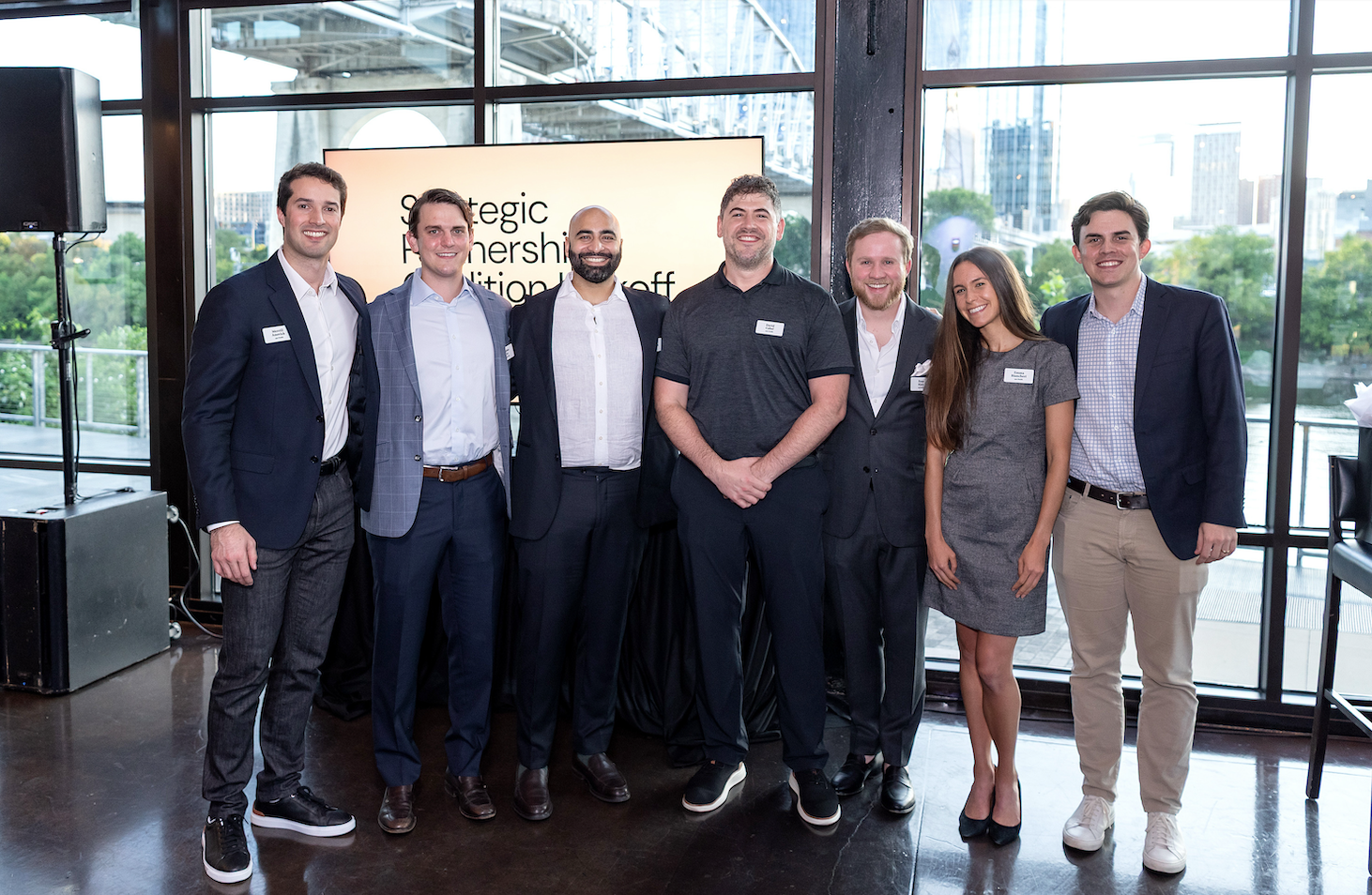Launching and growing a startup is an incredibly crazy, fun and stressful journey.
My co-founder and I have been running our party goods startup Coterie for the past few years. Throughout this time, we’ve been fortunate to be surrounded by incredible investors, teachers and operators.
This team of supporters has offered us endless helpful advice, much of which can be helpful for any founder, regardless of startup industry or phase.
1. Talk to Your Customers
Even before you have actual customers, you should start conducting customer interviews. These interviews will have a huge impact on your success, at every stage of your business. As we built Coterie, we received this advice time and time again from our investors and advisors, and the more we talked to customers, the more we saw its value. In my current role at 25madison, this is one of the first steps we take when incubating any new venture idea.
For most people, talking to customers about your brand and product can feel intimidating or awkward. It’s much easier to send out a survey to friends and family, and wait for the results. But customers interviews are much more insightful thanks to open-ended interactions and follow ups.
For example, in a survey we could ask, “Do you ever shop for party supplies online?” In a customer interview, we can ask “Walk me through the last time you bought party supplies?” The latter response will be much more insightful.
If you’re feeling unsure where to start with customer interviews, I highly recommend reading Talking to Humans (<- free copy). It’s a practical guide to customer development, teaching you how to run customer interviews effectively.
2. Founder Friends Make Excellent Therapists
During a monthly check-in with one of our investors, we were giving our business update and sharing our trials and tribulations. As we talked through the challenges we were facing, our investor shared that she had heard these same stories from so many other founders. And then she offered up these words of wisdom – “Why don’t you make it a priority to meet with a different founder each week?”
Feeling inspired by the start of a new year, we made this our new year’s resolution. Talking through our ups and downs with other founders made us realize we were never alone in our struggles. And, as an added bonus, we often received helpful advice from those who had been there before.
I recognize that meeting with a different founder each week requires that you know a lot of founders. 52 if you plan to stick to a year-long resolution. But like any resolution, take it a month at a time. Start with who you do know. Meet with founders, meet with operators, meet with anyone you know who may be experiencing similar pain points. And at every meeting, offer to introduce your coffee date to someone new in your network, and then ask if they’ll do the same.
Also, it’s okay to go on 2nd date with the same founder... a month can feel like a year in startup land.
3. Move Fast… But Intentionally
Ever since Mark Zuckerberg adopted the motto “Move fast and break things,” startups have followed suit. But at Coterie, my cofounder and I believed this advice would just lead to bandaids on bandaids, which you’ll inevitably have to spend significant time and money ripping off. There’s a happy medium where a business can be agile and adjust, without being in a constant state of whiplash.
For example, when we built our website at Coterie, it was really beautiful. But we didn’t take the time to understand it’s shopability. When we developed our initial photography strategy, we didn’t think to do some quick testing, and it turned out this strategy didn’t speak to (or convert) customers. Both of these mistakes ended up costing us a lot of money to fix. Looking back, I wish we had spent a little more time upfront getting it right.
And in case you don’t believe me, even Mark has changed his perspective. During his keynote in 2014, he said, “We used to have this mantra, ‘Move fast and break things. We were willing to tolerate a few bugs to [move fast]. But having to slow down and fix things was slowing us down. ‘Move fast with stable infra[structure]’ isn’t as catchy, but it helps us build better for the people we serve.”
4. You Don’t Get What You Don’t Ask For
As an early-stage founder, you’ll be responsible for negotiating contracts over and over again – for new hires, vendors and agencies. Oftentimes, we’re hesitant to negotiate because we don’t want to look inconsiderate or unknowledgeable. But people expect you to negotiate. And as a startup, you have a special advantage – everyone knows you are tight on cash.
During my MBA Negotiations class, my professor loved to remind us that you don’t get what you don’t ask for. Remembering this piece of advice, and not being scared to overask, saved us a lot of money at Coterie, and before that when I was running operations at Daily Harvest.
As long as you go about asking respectfully, the worst that can happen is they say no. The best that can happen is you get what you ask for. Most likely, you’ll land somewhere in between.
If you’re looking to improve your negotiation skills, check out the book Getting to Yes.
5. Prioritize, Prioritize, Prioritize
The never-ending to do list is an inevitable challenge for any startup founder. Whether you keep this list in Asana or on stickie notes at your desk, it’s a challenge that’s hard to avoid. So the question becomes, what’s the best way to tackle that list?
Without clear priorities, it’s easy to spend the day focused on the most fun or simplest tasks. But those aren’t necessarily going to have the biggest impact.
One of our advisors suggested that we prioritize our to do’s based on the P1, P2, P3 prioritization system, commonly used by tech teams to prioritize feature requests – but reorient the system based on our main company-wide goal. For us, it was to sustainably drive revenue growth, so we prioritized as follows:
· P1 – a task that is likely to have a high impact on revenue growth
· P2 – a task that may have a high impact on revenue growth, or is likely to have a medium impact on revenue growth
· P3 – a task that is will have only a low level impact on revenue growth
Each week, my cofounder and I would meet and look at our shared to do list. We’d prioritize our tasks based on the above system and divide and conquer. The following week, we’d check in on progress and repeat the process.
Rather than getting distracted by the fun or easy tasks, this system ensured we focused on tasks that would help us reach our goals.
6. Think About the Jobs You DON’T Want to Do
When putting together your business plans, it’s important to think about your knowledge gaps, and who you need to hire to fill those. But when we were putting together our hiring plan, one of our advisors told us to hire for the jobs that we did NOT want to do.
Part of being a founder (or any job for that matter) is that you’ll inevitably need to do things you don’t particularly enjoy – and that likely can’t be avoided. But if the worst part of your week is managing your fulfillment center, you may want to think about adding a logistics and ops manager to your hiring plans. If you are feeling overwhelmed by overseeing your team and lots of one-off projects, think about bringing on a Chief of Staff. You’ll inevitably reach a point where you can’t handle everything on your plate, and that’s when you can think about hiring for these roles.
And when it comes to hiring, don’t hire too soon. Payroll will inevitably be one of your biggest expenses, and your business needs will change constantly – so make sure you really need the person before you hire them.
7. Success Takes Time
It’s easy to have survivorship bias and focus on the most successful startups – to feel that if you aren’t seeing immediate hockey stick growth, you’re never going to make it. In our first year at Coterie, we were growing, but it wasn’t a hockey stick. Then COVID hit, and we considered throwing in the towel more than once. But then one day my dad reminded me that it took him 30+ years to build his business.
Sure, some startups aren’t meant to be, and there may come a time where you need to concede to failure (which really isn’t failure at all, as long as you learn from it and don’t repeat the same mistakes). But if you’re seeing signs of a real business, like product-market fit, or sustainable traction, be patient and push forward.
--
*The biggest thank you to my badass cofounder for going on this journey with me, and to our amazing investors, advisors, teachers, friends and family. The support (both emotional and tactical) has been instrumental and so greatly appreciated.
**If you liked this post, follow me on Twitter. And if you want to get in touch, send me a DM on LinkedIn — I always love connecting with others!









